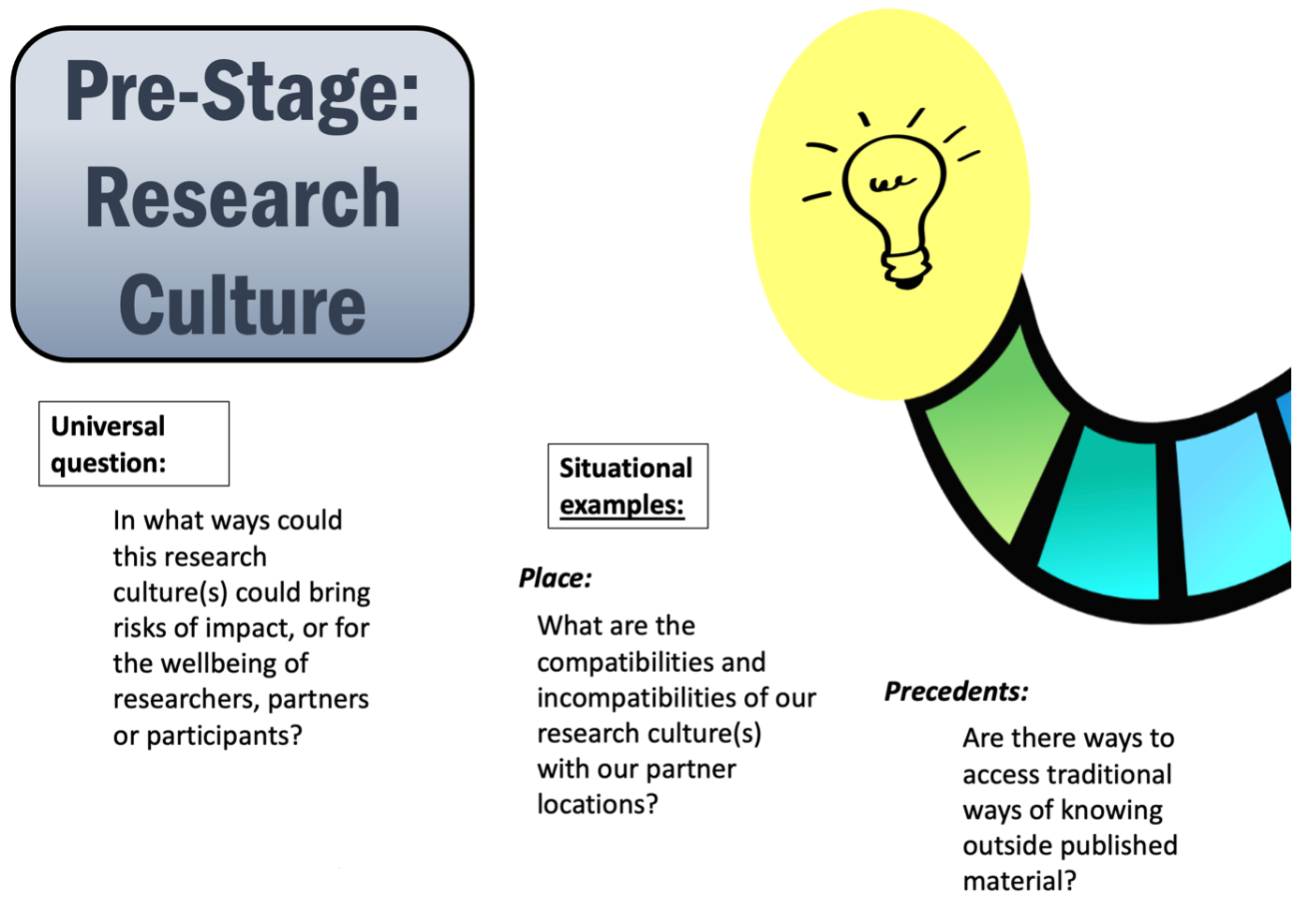|
Pre-Stage RESEARCH CULTURE
|
Before we even formulate a research idea, each of us is shaped by a particular worldview in the institution/community where we are based, and also the institutions in which we were trained. They will affirm and prioritise particular ways of knowing and may leverage significant power in relation to a sense of belonging and career progression. |
|||
|
|
||||
|
Being alert to ethical dilemmas |
||||
|
What are the different research cultures in this project when you think about the research team, or potential team – e.g., my own, my institution, our partners’ – and how might they interact?
|
Supporting considerations:
|
|||
|
Working towards solutions |
||||
|
Place |
People |
Principles |
Precedent |
|
|
To ensure ethical outcomes, we need to consider – and in some cases even resist – the particular biases of our institution/community and to be conscious in identifying our own individual biases or assumptions and those of our research teams. We need to consider compatibilities and incompatibilities in research culture(s) with our partner locations. |
We should seek guidance from key stakeholders and partners on the ‘goodness-of-fit’ of the research culture with the needs of the place in which we are conducting the research. Who are the key stakeholders and how might we approach them?
Using the ethics application as a starting point for discussion at this stage will help foreground ethical considerations and be useful for those new to a complex global research.
|
Invest time in understanding the explicit and implicit elements of the research culture influencing key team members, partners and other stakeholders, at the earliest stages of project development.
Understanding key underlying values and worldview can pre-empt many ethical challenges down the line. |
Look for examples in policy, practice, publication and traditional ways of knowing, to indicate what aspects of research culture have most influenced research undertaken in this place or on this topic in the past. Are there ways to access traditional ways of knowing outside published material? |
|
Body
